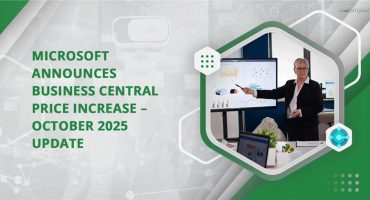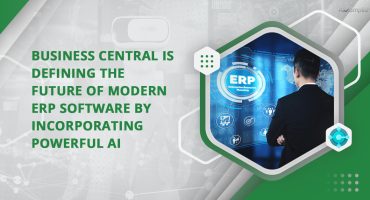Rapid scalability was a major concern for on-premises ERP systems. There are hardware limitations and difficulties in updating the entire system.
Cloud-based ERPs have the scalability options to grow your business rapidly by adding users and licenses and providing storage capabilities for new plants or manufacturing processes.
Rapid changes in technology would demand significant investments with on-premise ERP but a flexible and adaptable system may help you overcome these barriers quickly.
Cloud ERPs’ operating principles are well-suited for adaptability.
It’s a universal myth that cloud cannot provide the stability and security of an on-premises ERP system. Leading cloud ERP app providers have security tools that are at par with any on-premise system. Some of them even have additional features that on-premises systems don’t have.
Some interesting advance features inclusive but not exhaustive on the list are discussed below:
- Multiple surplus layers of backups and fail-safes
- Automatic and system-wide updates to fix security flaws
- Dedicated cloud security professionals for systems
- Constant updating with the current state of technology
Smart-phones are an inseparable part of our daily routine and considered a business tool for a while now. But what you may not know is that an ERP-enabled device will allow refined access and control with a cloud-based ERP.
Another feature of a cloud-based ERP that makes mobile compatible is the fact that it offers centralized access to data across the organization at the same time removing the usual barriers of an on-premise system.
It is therefore foresight to use a mobile-enabled cloud ERP such as Business Central and achieve maximum integration of devices as tablets and phones.
What are the benefits of this?
- Well for once, it allows top management access to data whenever and wherever they need it.
- It provides real-time updates and thus facilitates efficient manufacturing.
- Provides the latest information to sales staff which is crucial to make the best deals.
It is like carrying your business on the palm of your hand!
Do we ever realize how much energy an on-premises server room consumes?
Research shows that data centers in the U.S. consumed power which was equivalent to six million-plus homes and was around 2% of the country’s total energy consumption!!
Most of the cloud ERP systems are hosted on multitenant servers. This consolidates different clients onto a single server which is designed to manage storage space and bandwidth very effectively.
If that does not inspire you to switch to the cloud, nothing will!
No doubt each cloud ERP has its own strong points and each business needs to evaluate how it meets their needs. But undoubtedly they keep pushing the ERP software market through their innovative cloud-based solutions.
According to Top10ERP.org “Less than a decade ago, cloud-based ERP software was an exciting but largely unproven technology. Now, it’s clear that not only is the technology prime-time ready, but it’s rapidly becoming the gold standard. ”
According to Top10ERP.org “Less than a decade ago, cloud-based ERP software was an exciting but largely unproven technology. Now, it’s clear that not only is the technology prime-time ready, but it’s rapidly becoming the gold standard. ”
We hope this post inspires you enough to make the change and take that first step. For more product related queries, please contact us.




